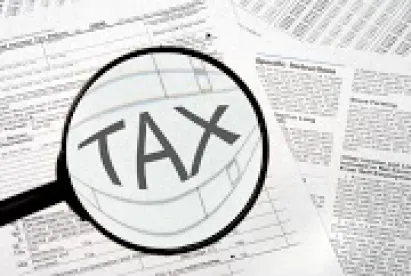Legislative Activity
The Long March to Tax Reform Continues
On June 24, House Ways and Means Committee Chairman Kevin Brady (R-TX) released the House GOP’s Task Force on Tax Reform’s long-awaited tax reform “Blueprint,” which lays out the GOP’s tax policy agenda for 2017. Specifically, the proposal focuses on: (1) individual taxation; (2) corporate taxation; (3) international taxation; and (4) the need to reform the Internal Revenue Service (IRS).
In addition to the House’s Blueprint, Senate Finance Committee Chairman Orrin Hatch (R-UT) continues to push forward with his proposal on corporate integration, aimed at eliminating the double taxation on corporate income through a dividends-paid deduction. While he had previously indicated the proposal would be released sometime in June, the scoring of the proposal has taken longer than expected, partially due to determining the potential impact on retirement plans and tax exempt entities. Despite the delays, the proposal will nevertheless likely be released sometime this summer.
Senate Finance Committee Democrats – who may be in the majority next Congress – are also continuing with efforts to present their own tax reform agenda expected before year’s end. According to Senate Finance Committee Ranking Member Ron Wyden (D-OR) and Todd Metcalf, Chief Democratic Tax Counsel, the Democrats plan will contain a package of anti-inversion proposals, as well as more comprehensive tax reform measures.
Unfinished Business: Energy Tax Extenders Remain in Limbo
While continuing to push on with forward-looking tax reform measures, there remains unfinished business that several lawmakers would like to see resolved before the end of the year: an extension of the energy tax extenders that were left out of last December’s fiscal agreement. Some Members have discussed using a miscellaneous tax bill to address the soon-to-expire extenders. However, given current dynamics, it is possible that only “must-pass” legislation will be addressed before the end of the year (e.g., the clean Federal Aviation Administration (FAA) reauthorization bill), which Congress is expected to vote on this week. Both Senators Wyden and Chuck Schumer (D-NY) had previously indicated a preference to use the FAA reauthorization bill as the vehicle to extend the energy tax provisions while, on the House side, Chairman Brady appears to favor waiting until next Congress to address any remaining tax extenders. With the FAA reauthorization bill likely off the table as a vehicle, it is uncertain.
This Week’s Hearings:
-
July 13: The House Ways and Means Committee: Expanding U.S. Digital Trade and Eliminating Barriers to U.S. Digital Exports
Regulatory Activity
Treasury Pressing on with Section 385 Regulations
Despite best efforts by lawmakers and industry to obtain a delay in the close of the comment period, the finalization and implementation of the proposed debt-equity regulations, or both, the Treasury Department is moving forward. Instead of delaying the regulations, it appears that Treasury is focused more on making changes to specific areas of the rulemaking that may have a broader, more devastating impact than intended (e.g., cash pooling). The comment period for the proposed regulations closed on time, this past Thursday, July 7, and a hearing on the regulations is slated to be held this Thursday, July 14.
In leading up to the close of the comment period and in advance of this week’s hearing, multiple business groups have submitted comments on the proposed regulations, primarily focusing on the proposal’s many unintended consequences, such as the potential impact on ordinary cash pooling and the detrimental effect the rules may have on foreign investment in the U.S.. From the Hill’s perspective, all Republican House Ways and Means Committee Members and seven Senate Finance Committee Republicans also reached out to Treasury, requesting the complete withdrawal, or, at a minimum, a delay in the implementation of the proposed regulations. Democrats, however, remain split on the issues. While eleven House Ways and Means Committee Democrats asked the Treasury Department to consider “whether exceptions or special rules, including transition rules, are appropriate” for the proposed Section 385 regulations, ten other House Democrats wrote to Treasury urging it “not to yield to the intense lobbying against these regulations, directed at both Treasury and the Congress, by multinational business and its trade associations.”
For now, Treasury is proceeding on schedule, though it remains to be seen whether it will extend its self-imposed pre-Labor Day deadline for finalizing the regulations. Such a deadline will require a quick turn-around upon reviewing the submitted comments and feedback received at the hearing.
European Commission Releases New Tax Transparency Initiatives
As part of the European Union’s (EU) ongoing efforts to crack down on tax evasion and avoidance, the European Commission (EC) has published two documents outlining additional forthcoming action on the matter.
First, largely a result of the Panama Papers controversy, the EC published a Communication addressing the need for additional measures to enhance transparency, help fight against tax evasion and avoidance, and result in “a stronger and more coordinated EU stance against tax abuse [that is] aligned to the international agenda.” As such, the Communication indicates that the Commission will focus on the following areas in the coming months: (1) harnessing the link between anti money laundering and tax transparency rules; (2) improving information exchange on beneficial ownership; (3) increasing oversight of enablers and promoters of aggressive tax planning; (4) promoting higher tax good governance standards worldwide; and (5) improving the protection of whistle-blowers.
Second, the EC published a Directive that would amend anti-money laundering laws to better counter the financing of terrorism and ensure increased transparency of financial transactions and of corporate entities under the preventive legal framework in place in the EU, namely Directive (EU) 2015/849 (“4AMLD”). Specifically, the directive would amender 4AMLD by: (1) designating virtual currency exchange platforms as obliged entities; (2) setting lower maximum transaction limits for certain pre-paid instruments; (3) enabling financial intelligence units (FIUs) to request information on money laundering and terrorist financing from any obliged entity; (4) enabling FIUs and competent authorities to identify holders of bank and payment accounts; (5) harmonizing the EU approach towards high-risk third countries; (6) improving access to beneficial ownership information; and (7) clarifying a number of existing provisions.
Relatedly, on July 11, the EU Economic and Financial Affairs Ministers are expected to meet in order to adopt a separate directive to tackle tax avoidance following an agreement the Ministers reached on the proposal last month.
BEPS Implementation Continues in the U.S., Across the Globe
On June 30, the Internal Revenue Service (IRS) published a final rulemaking, which requires annual country-by-country (CbyCR) reporting by U.S. companies that are the ultimate parent entity of a multinational enterprise group with annual revenue for the preceding accounting period of $850 million or more. The CbyCR reporting periods in the U.S. begins with the first taxable year after June 30, 2016, however, given that foreign subsidiaries of U.S. multinational corporations could be subject to CbyCR reporting in foreign jurisdictions for the 2016 tax year, the IRS plans to accept voluntary CbyCR reports filed for 2016 and exchange them with foreign jurisdictions on behalf of such corporations. From a legislative perspective, Congress continues to examine domestic CbyCR implementation, with Representative Charles Boustany (R-LA) leading the charge. His legislation (H.R. 4297, BEPS Act) to delay U.S. implementation of CbyCR reporting, however, will require some revisions in light of the IRS’ finalized rules.
More broadly, Action 15 of the Base Erosion Profit Shifting (BEPS) Project calls for the development of a multilateral instrument (MLI) to modify existing tax treaties between participating countries. The Organisation for Economic Co-operation and Development (OECD) recently released a discussion draft of the multilateral instrument (MLI) in order to elicit input from the public on: (1) technical issues of implementation; and (2) issues related to the development of a Mutual Agreement Procedure (MAP) arbitration provision. Comments on such issues were due by June 30, and a hearing on the MLI was held on July 7. An Ad Hoc Group began its work developing the MLI back in May 2015 and aims to conclude its work and open the MLI for signature by December 31, 2016.




 />i
/>i
